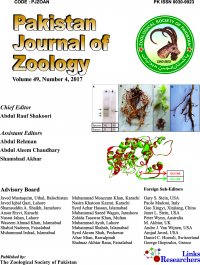Genome Characterization of Probiotic Lactobacillus delbrueckii Subsp. bulgaricus Strain NDO2 Isolated from Traditional Yogurt using High Throughput Next Generation Sequencing
Genome Characterization of Probiotic Lactobacillus delbrueckii Subsp. bulgaricus Strain NDO2 Isolated from Traditional Yogurt using High Throughput Next Generation Sequencing
Mati Ullah1*, Muhammad Rizwan2, Ali Raza3, Xianlin Zhao4, Yanling Sun4, Sarah Gul5, Muhammad Ihtesham Waheed6, Muhammad Nadeem Khan7, Alvina Gul8, Sami Ullah Jan9* and Chao Huang4*
ABSTRACT
Probiotic bacteria present in fermented milk and its products have a long history of safety and health associated uses. If bacteria isolated from yogurt is characterized technologically and gnomically, it could be used in fermentation for selective purposes. In the current study, we have comprehensively analyzed the genome of Lactobacillus delbrueckii subsp. bulgaricus NDO2 isolated from traditional yogurt samples using the next-generation sequencing approach. The GC contents of the selected genome were 45.3%. Among the total 2284 genes identified, 970 genes similar in three genomes make the core genome portion. The subsystems, category distribution analysis revealed “carbohydrates” was the largest subsystem, followed by “protein metabolism”. The eggNOG functional analysis revealed that the COGs associated with “Carbohydrate transport and metabolism were dominant followed by those associated with “Replication, recombination, and repair” while the biological pathway analysis by the Kyoto encyclopedia of genes and genomes (KEGG) database identified the metabolic and biosynthesis of secondary metabolites pathway as the dominant one. These findings provide a broader genomic understanding of the famous probiotics bacterial species for general as well as commercial applications. This study could also be used basis for similar studies.
To share on other social networks, click on any share button. What are these?










